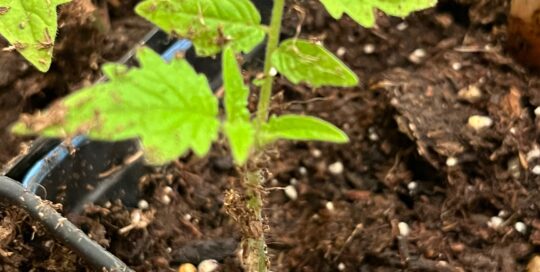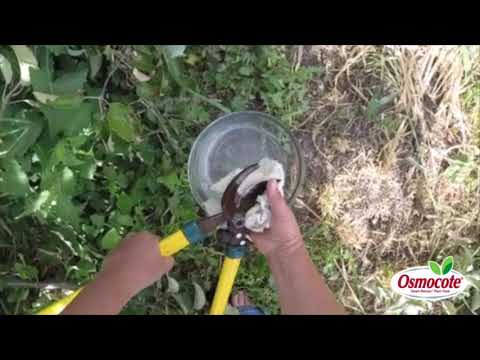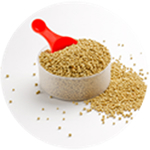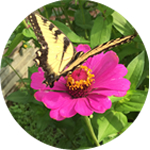Use Mesh Bags to Keep Pests Away
Views: 3261
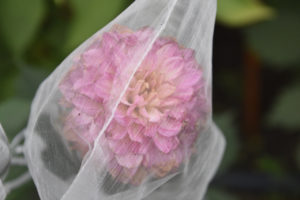
No matter what chemicals are available, sometimes the best pest protection is a barrier. It really hit home when I visited a commercial flower garden this past week. They had issues with thrips on their dahlias so they used mesh bags to keep the pests away from the blooms. When you think about it, a simple barrier like this is the answer to a lot of our pest problems.
Economical and Environmentally Sound Mesh Bags
Pesticides, even organic ones, can cost a lot with frequent applications. And many of us gardeners have quite the selection in our garden sheds. The nice thing about using mesh bags is they are reusable. Plus they are inexpensive often costing only $.20 apiece.
Along this line they are also environmentally sound because there is no poison involved. Even organic pesticides can harm beneficial insects, such as bees, but by using the mesh bag, there’s no risk. They are also reusable so waste is minimal.
Easiest Way to Protect Fruits and Vegetables from Pests
Covering Flowers and Vegetables for Insect Pests
We are in another season with grasshoppers running amok. Granted, it’s not as bad as the past couple of years, but it’s still not pleasant to have them eating everything. Instead of fighting with the floating row covers, which are difficult in our windy days, I am relying on the mesh bags to protect tomatoes and other vegetables. I even found some that are 8″ x 10″ that can be used over chard and larger plants.
This is also what we should have used for corn. My youngest son grew a “three sisters” garden with corn, pole beans, and squash. But of course, the earwigs attacked the ears of corn early in their development. The first ear he harvested had spotty kernels because of incomplete pollination, plus the earwigs are just gross. He didn’t constantly dust them with diatomaceous earth, each year would be an earwig party. Mesh bags solve that problem.
Earwig Prevention, Sprays and Traps
The only tricky part about utilizing mesh bags as an insect pest prevention with fruits or vegetables is you can’t put the bag on until pollination is complete. Of course, this is when many plants are vulnerable. But once the fruit or vegetable is set, it’s a matter of slipping a bag over the top and pulling the drawstrings closed.
For flowers, they are a terrific way to keep pests off of them to ensure perfect blooms. As soon as the flower buds, placed the bag over the top and pull the drawstrings closed. One consideration that could be an issue is the extreme heat in some climates. It does appear that petals burn if it’s going to be in the mid 90s or hotter for extended periods of time. Just keep that in mind.
Mesh Bags for Bigger Pests
The neat thing about using these mesh bags is they are useful for pests beyond insects. The larger bags are perfect to use on young transplants to prevent damage from squirrels and rabbits. These also thwart deer. (I wish I would’ve thought about this earlier. I planted upwards of 50 strawberry plants, which were gleefully eaten by Bambi and Company.)
Placing them over apples is a good way to keep birds from ruining the crop. Granted, it would be nearly impossible to put bags over every apple on the tree, but at least you could protect a few dozen that are within easy reach. I have floating row covers over the strawberries this year, but might switch to these mesh bags next year. They are easier to water through and they don’t blow away or tear as easily in the wind. This way we might actually enjoy strawberries instead of the birds eating them when I have the row cover off for 30 seconds.
If you don’t want to use any chemical means to minimize pest damage, consider spending $10 for mesh bags. It is money well spent!
Meet Amy Grisak
Amy is a freelance author and photographer in Great Falls, MT who specializes in gardening, foods, and sustainable agriculture. She provides information on every kind…
Amy's Recent Posts
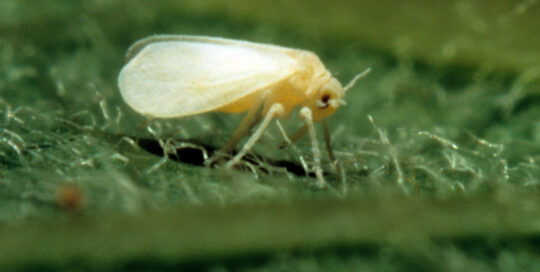
Watch Out for Silverleaf Whiteflies
